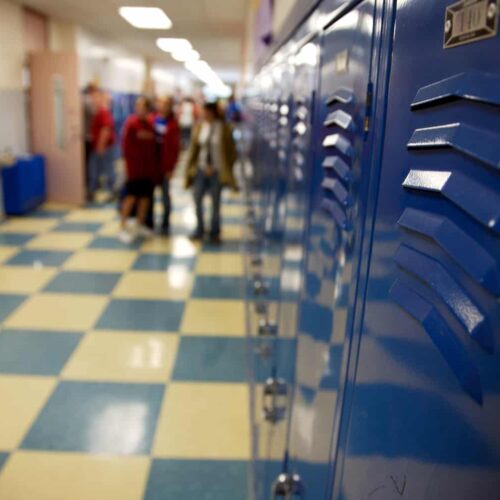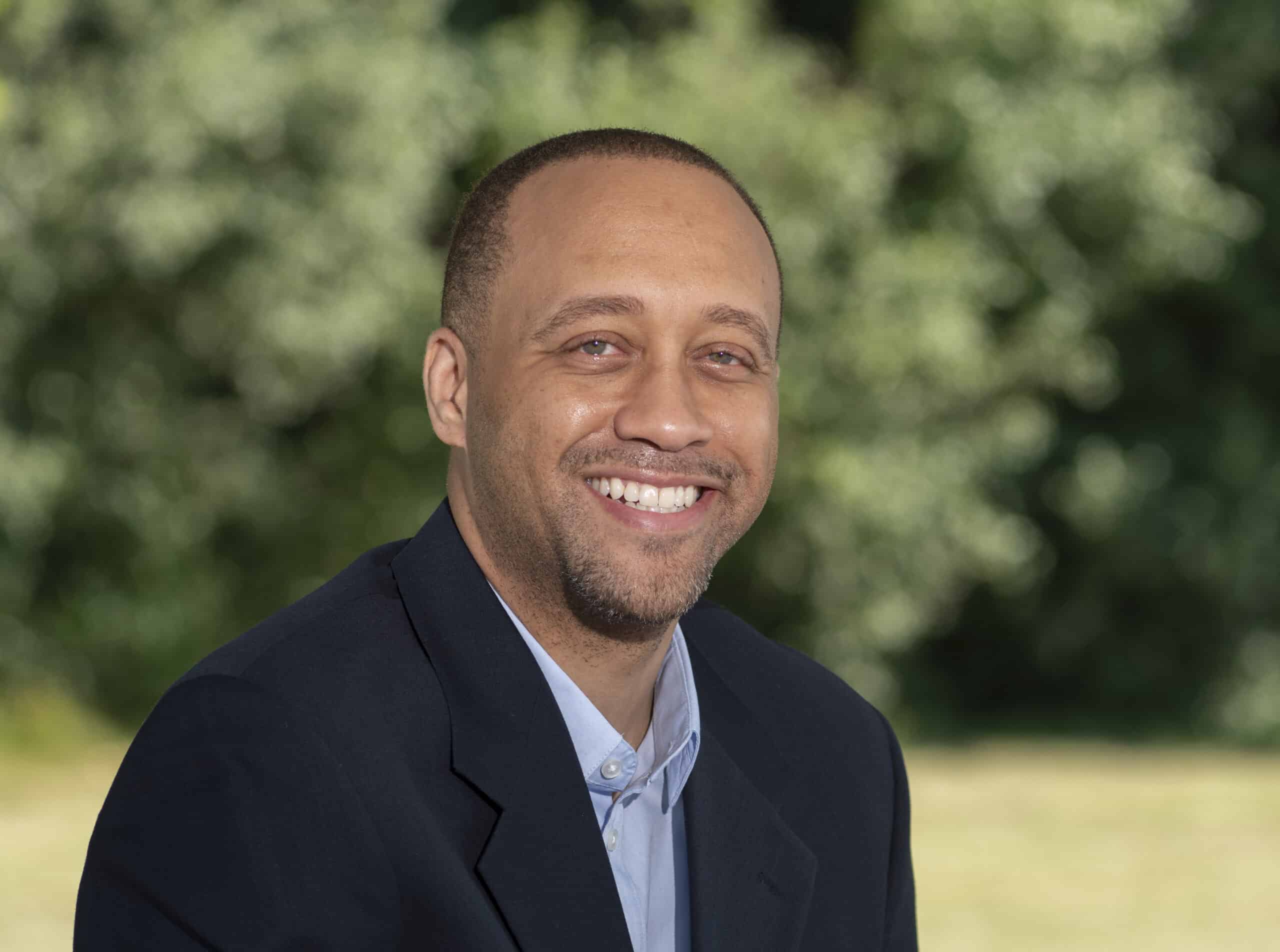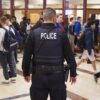Introduction
Public Integrity’s recent report, “When schools call police on kids,” showed that nearly 230,000 students were referred to law enforcement across the country during the 2017-18 school year and more than 50,000 were arrested.
But our reporting also revealed something else: the numbers likely were far worse. Some of the nation’s largest school districts had either underreported or failed to report interactions between police and students, which can result in arrests, criminal charges or citations that require them to appear in court.
The federal data we used for our investigation, the Civil Rights Data Collection from the U.S. Department of Education, showed that the Pittsburgh School District, the second largest in Pennsylvania, had no students arrested on campus.
But data from the Pennsylvania Department of Education showed 86 arrests that school year. The district blamed the difference on a data entry error, yet the number remains uncorrected on the CRDC website.
Pittsburgh isn’t alone.
New York City, the nation’s largest school district, also reported zero arrests. Yet New York City Police Department records show that officers arrested nearly 1,200 students on campuses between July 2017 and June 2018.
The numbers are fuzzy in other districts too but one thing is clear: the CRDC data does not paint a complete picture of how often law enforcement officers are questioning and arresting students on school grounds.
Three other school districts, including Chicago, among the 10 largest in the nation reported that law enforcement officers arrested zero students during the 2017-18 school year.
Reporters, researchers and advocates have for years known that the federal data contains errors on everything from student referrals to law enforcement to the number of children eligible for disability rights protection. Such errors, they say, undermine the very purpose of the data collection effort: to ensure the civil rights of all children in the United States are protected in schools.
Districts are required by law to enter their own figures into the database. With tens of thousands of districts, some errors are inevitable. But the Department of Education does not require districts to provide a contact so it is difficult to track who entered the data to check inaccuracies.
Nevertheless, the data is the only detailed information on discipline that covers nearly all public schools. Experts say errors in the data can mask the true extent of the disciplinary disparities we found when reporting our story.
“That’s a huge problem. The failure to report what’s going on makes these kids who are getting arrested [and] referred to police less visible,” said Daniel Losen, director of the Center for Civil Rights Remedies, an initiative of the Civil Rights Project at the University of California, Los Angeles.
We sent a detailed list of questions to the Office for Civil Rights, but they declined to answer questions or make someone available for an interview.
Public Integrity partnered with newsrooms across the country to explore disparities in school policing. Some of the partner organizations also found undercounts of arrests and law enforcement interactions in schools.
WFAE-FM in North Carolina found that school districts did not accurately report how often they referred students to law enforcement.
The New Bedford, Massachusetts, school district has inaccurately reported zero student arrests to the federal government since 2009. After stories by the New Bedford Light exposed the problem, the Office for Civil Rights said it would review the district’s data submissions.
But beyond urging school districts to comply with the law, the federal government has limited options at its disposal to enforce accurate reporting of arrest and law enforcement referral data, Losen said. “There’s no accountability.”
The federal government could withhold federal funding for districts that refuse to report timely and accurate numbers, Losen said. But he couldn’t recall an instance where that has happened. That may be because a penalty like that would harm the very students the office for civil rights was established to protect.
“For some violations, like not reporting your data, the agency is left with the enforcement option of the atom bomb or nothing.” Losen said. “Once a district realizes they’re not going to get held accountable, then there’s no sort of more reasonable deterrent.”
Having low arrest and law enforcement referral numbers can help districts avoid public scrutiny and the threat of having their schools labeled as dangerous.
After analyzing the 2015-16 federal data, Losen determined that 60% of all large school districts reported zero arrests. Nearly a third reported no arrests or law enforcement referrals.
Losen also used the data to explore disparities in student arrest rates for Black and white students. And he found that Pittsburgh was among the districts with the highest arrest rate for Black students.
During that academic year, 10% of all Black secondary school students in the district were arrested. But less than 2% of white students were arrested. All told, the district had more than 900 school-related arrests that year, according to Losen’s analysis of CRDC data.
Then, two years later, zero.
“You would think there would be some sort of accountability, which there doesn’t seem to be at either the state or the federal level,” said Ghadah Makoshi, a community advocate with the ACLU of Pennsylvania whose work focuses on school police reform. “And, honestly, it should not be this difficult to find accurate, reliable data on student arrests.”
Joe Yerardi is a data reporter at the Center for Public Integrity. He can be reached at jyerardi@publicintegrity.org. Follow him on Twitter at @JoeYerardi.
Corey Mitchell is a senior reporter at the Center for Public Integrity. He can be reached at cmitchell@publicintegrity.org. Follow him on Twitter at @C_C_Mitchell.
Help support this work
Public Integrity doesn’t have paywalls and doesn’t accept advertising so that our investigative reporting can have the widest possible impact on addressing inequality in the U.S. Our work is possible thanks to support from people like you. Donate now.
Read more in Education
Watchdog newsletter
States urged to repeal cops’ special legal protections
With hope of federal legislation dead, the fight for policing reform moves to states. One goal: repealing the Law Enforcement Officers’ Bill of Rights.
Watchdog newsletter
Election officials scramble to find poll workers
This year’s elections are lower profile, but it still takes thousands of people to run them.





Join the conversation
Show Comments